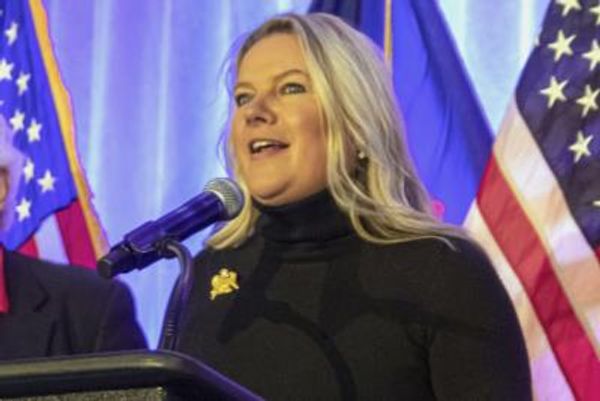The Federal Reserve’s campaign to raise interest rates has many experts worried that a recession may be coming. You can count Goldman Sachs economists among them.
Goldman economists previously thought, “there is a feasible though difficult path to rebalance the labor market and bring down inflation without a recession,” according to a commentary.
“Starting in early May, we argued that financial conditions had tightened enough to put the economy on the moderately below-potential growth path that maximizes the Fed’s chances of success.”
Success here means raising interest rates enough to quell inflation, but not so much as to cause a recession.
“The news since then has been mixed,” the economists said.
Upside, Downside
“Encouragingly, economic activity has decelerated, labor demand has begun to moderate, wage growth has shown early signs of slowing, and supply chains have continued to recover.” The economy shrank an annualized rate of 1.5% in the first quarter.
But on the downside, “commodity prices have risen further and pushed up inflation expectations, and shelter inflation jumped in May,” the economists said.
“In response, the Fed has front-loaded rate hikes more aggressively, terminal rate expectations have risen, and financial conditions have tightened further.”
Those tighter conditions “imply a substantially larger drag on growth — somewhat more than we think is necessary,” the economists said. “We are downgrading our GDP forecast to reflect this additional drag.”
They see GDP growth of just 0.9% for all of 2022, down from their previous forecast of 1.3%. And they expect growth of only 1.4% in 2023, down from 1.6% previously.
Higher Recession Risk
“We now see recession risk as higher and more front-loaded,” the economists said. That’s partly because of the growth forecasts.
“Also, we are increasingly concerned that the Fed will feel compelled to respond forcefully to high headline inflation and consumer inflation expectations if energy prices rise further, even if activity slows sharply.” Consumer prices soared 8.6% in the 12 months through May.
The economists peg the chance of a recession over the next two years at 48%, up from 35% previously.
The probability isn’t higher, because “we are skeptical that hot wage growth and high inflation expectations are as entrenched today as back then [the 1960s-70s],” they said.
The economists aren’t looking for a severe recession. “With no major imbalances to unwind, a recession caused by moderate overtightening would most likely be shallow,” they said.
Of course, “even shallower recessions have seen the unemployment rate rise by about 2 1⁄2 percentage points on average,” the economists note. The unemployment rate registered 3.6% in May.
“One additional concern this time is that the fiscal and monetary policy response might be more limited than usual,” the economists said.
Summers' View
Meanwhile, Harvard economist Larry Summers said June 20 that we need five years of unemployment above 5% to contain inflation, according to Bloomberg.
But Fed policy makers have a median forecast of just 4.1% for unemployment in 2024.
“The gap between 7.5% unemployment for two years and 4.1% unemployment for one year is immense,” the former Treasury secretary said. “Is our central bank prepared to do what is necessary to stabilize inflation if something like what I’ve estimated is necessary?”







